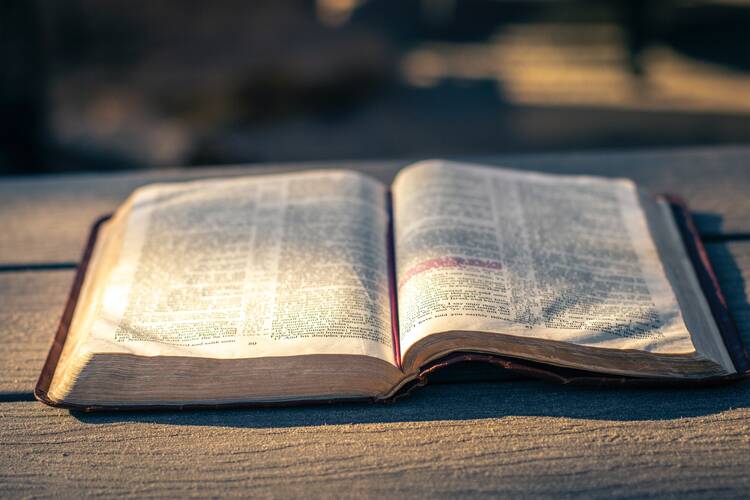A Reflection for the Memorial of St. John Chrysostom, bishop and doctor of the church
Find today’s readings here.
Raising his eyes toward his disciples, Jesus said:
Blessed are you who are poor,
for the Kingdom of God is yours.
Blessed are you who are now hungry,
for you will be satisfied.
Blessed are you who are now weeping,
for you will laugh.
Blessed are you when people hate you,
and when they exclude and insult you,
and denounce your name as evil
on account of the Son of Man.
Rejoice and leap for joy on that day!
Behold, your reward will be great in heaven.
For their ancestors treated the prophets
in the same way.
But woe to you who are rich,
for you have received your consolation.
But woe to you who are filled now,
for you will be hungry.
Woe to you who laugh now,
for you will grieve and weep.
Woe to you when all speak well of you,
for their ancestors treated the false prophets in this way.” (Lk 6:20-26)
I had a classmate many years ago in a course on the New Testament who had an amusing if sometimes startling habit. We would be discussing a difficult passage, perhaps one of the “hard sayings” of Jesus, and he would give whoever was next to him a jolt in the ribs and whisper: “Hey—what if Jesus really meant it?”
We all know why the joke works; sometimes Jesus seems to suggest actions or consequences that are harsh, or revolutionary, or beyond our capacity to incorporate into our lives. We try to explain them away: Maybe Jesus was speaking in hyperbole. Maybe, to paraphrase Flannery O’Connor, to the hard of hearing he shouted, and for the almost-blind he drew large and startling figures. Or maybe we just don’t understand the context.
When we look at this Gospel through the eyes of the poor, the hungry, and those who are excluded and insulted, it is very important that Jesus really meant it.
But what if Jesus really meant it?
Luke’s account of the Beatitudes in today’s Gospel reminded me of those moments, because while Matthew’s version feels a bit nuanced if not attenuated (“Blessed are the poor in spirit,” and “Blessed are those who hunger and thirst for righteousness”), in Luke, Jesus just comes right out with it. No, it’s “Blessed are you who are poor,” and further, “woe to you who are rich.” It’s “Blessed are you who are now hungry,” and further, “woe to you who are filled now.” Is this Jesus’ verdict of guilt upon the First World? A reminder that our bourgeois Christianity is an institutional reality, not a Gospel community? Maybe both. But it is also a message of hope to the downtrodden, to the hungry, to the outcast. Do you remember what the Party man O’Brien says to Winston Smith in George Orwell’s 1984? “If you want a picture of the future, imagine a boot stamping on a human face—for ever.” For those downtrodden, hungry and outcast in Jesus’ time as well as our own, that might very well feel like what inevitably still lies in store. But that is not the future Jesus offers, nor his promise to the people who might well expect that their suffering might endure forever. In the end, when we look at this Gospel through the eyes of the poor, the hungry, and those who are excluded and insulted, it is very important that Jesus really meant it.








